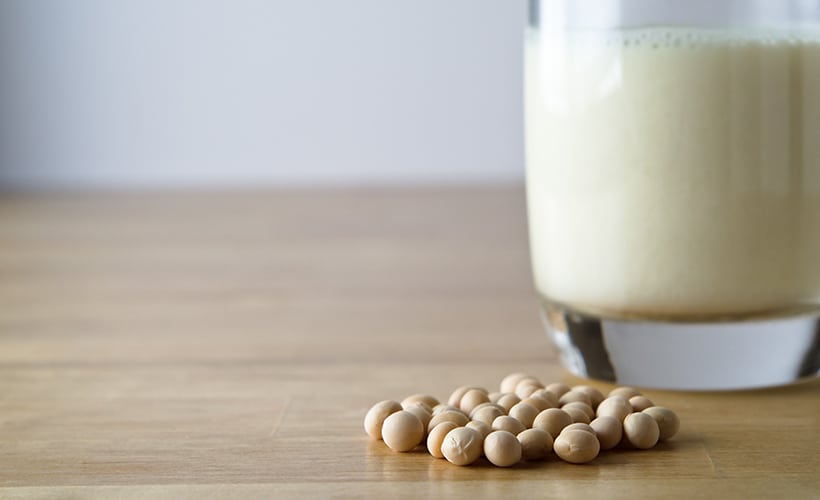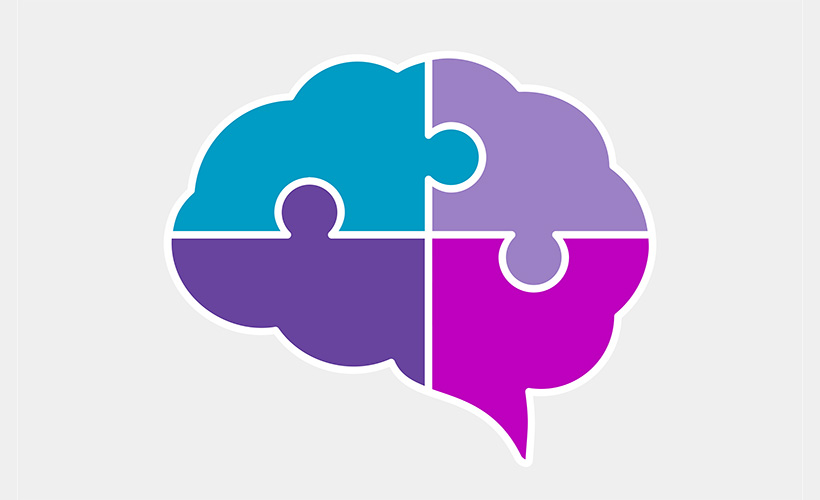Our gut, or gastrointestinal/digestive system, is having its turn in the sun as research reveals that this is no simple plumbing job, but a highly sophisticated, intelligent system.
It shouldn’t really be too much of a surprise. After all, we use expressions like ‘gut instinct’, ‘gut feeling’ and ‘listen to your gut’ in a serious tone when we really want to know what’s true and right. And if you looked back 2000 years, you’d find Hippocrates – the ‘father of medicine’ – saying that “all disease starts in the gut”.
Gut working well? All well
If the digestive system is working well, then the benefits of this flow out to the rest of the body helping us with immunity, brain function and even our emotions.
Why? Ultimately all of the body is connected to the digestive system, and depends on it. Our gut has a lot of jobs but one of the most important is determining what’s good in food – nutrients – and helping get these nutrients out to all parts of the body so these other areas can function. If not enough nutrients are being processed and reaching all these other parts of the body, then you are not going to feel as well or strong as you could.
Your growth and development, energy levels, mental health and performance, sleep quality and quantity, exercise performance and recovery, weight, likelihood and management of illness, and more, are all affected by your nutrient intake and absorption.
Helping our gut function well are billions of friendly bacteria. Different strains affect your body in different ways, and low levels overall have a detrimental effect on the health of your gut – your digestion will not be working at its optimum. In this situation you probably also have too much harmful bacteria, which compete with beneficial bacteria for resources and can flourish at their expense, and generally make you feel unwell.
Your immunity
Your body needs a healthy digestive system to manufacture vitamins, and to have good levels of immunity – many nutrients are needed to fight invading organisms. Amazingly, your gut’s intestinal tract is responsible for around 70% of your immunity. As well as aiding nutrient absorption, your intestinal lining acts as a barrier to illness-causing viruses and bacteria, but can also be an entry point for these nasties if not functioning well.
Lynette Hill, a naturopath and homeopath at the natural medicine clinic My Remedy on Auckland’s North Shore says that: “When we have consistently impaired intestinal flora, we start to see symptoms such as allergies (asthma, skin disorders), obesity, digestive issues and Irritable Bowel Syndrome (IBS). Long-term imbalance can lead to more serious and chronic conditions. She believes there is a link to type II diabetes, heart disease, high cholesterol and even depression.
So, why wouldn’t our guts work well?
Bacteria imbalance
Good bacteria can be badly affected by antibiotics, the oral contraceptive pill, steroids, stress and aging, a poor diet, pollution and more. Harmful bacteria, on the other hand, can flourish due to a poor diet, stress or fatigue. In order for us to maintain a healthy digestive system we need to ensure that we have balanced intestinal flora with more of the good bacteria and less of the bad. An imbalance is called dysbiosis.
Lynette Hill says that it can be a good idea to replace good bacteria daily with a quality probiotic. With a gut full of balanced bacterial flora, digestive enzymes and acids should be able to cope with processing foods efficiently, so you are better off on the whole.
Diet
Our diet has changed dramatically. Lynette says that traditional diets around the world typically included raw and fermented food such as yoghurt, kefir, sauerkraut, and fermented fish, all containing many strains of beneficial bacterium.
“These days we eat ‘stuff’ that resembles food in the way it looks and smells and is shaped but it isn’t really food – it is often heavily processed and even deodorised. In many ways this ‘stuff’ is foreign to our bodies, which is designed to break down whole foods.
“Additionally, helpful bacteria is often missing and has been replaced with preservatives, starches, sugars, vegetable oils, flavour enhancers and bulking products. Starches and sugars alter the balance of good bacteria by feeding harmful bacteria,” says Lynette.
Stress and fatigue
For the gut to work efficiently, we need to be relaxed. Unfortunately, in modern day life we are often suffering from stress and fatigue.
Stress particularly affects our gut by altering the population of our bacterial colonies and causing imbalances so there is a shortage of good bacterial flora. This can have detrimental effect on the gastrointestinal tract by inhibiting gastric acid release (which activate digestive enzymes that help break down foods) or in the bowel with motility changes (abnormal contractions), so you should really just take time out to relax and focus your attention on the all-important job of eating!
“Even with the best of diets, if we’re constantly stressed, eating on the run or while working or focusing elsewhere (in front of TV for example), our body is less able to digest our foods efficiently, and food passes out of the gut and into the bowel only partially digested,” says Lynette. “No wonder we are having more and more IBS, bloating and digestive problems.”
Affecting 10 to 20% of the population, IBS (Irritable Bowel Syndrome) is a problem that affects the functioning of the large intestine. It can cause abdominal cramping, bloating, and a change in bowel habits.
How your gut affects overall health – recent research
Weight gain
Gut bacteria has been linked to weight gain. Researchers in the Alimentary Pharmabiotic Centre at the University College Cork have discovered how gut bacteria communicate with their host to regulate weight gain and serum cholesterol levels. The research has implications for the selection and design of probiotics for the control of obesity, high cholesterol and diabetes.
Cholesterol
Researchers at the University of Gothenberg have shown that cholesterol metabolism is regulated by bacteria in the small intestine. These findings may be important for the development of new drugs for cardiovascular disease.
Personality/Happiness
The brain’s levels of serotonin – the ‘happy hormone’ – are regulated by the amount of good bacteria in the gut during early life, say scientists in the Alimentary Pharmabiotic Centre at the University College of Cork. They found that the absence of bacteria during early life significantly affected serotonin concentrations in adulthood, and was difficult to reverse.
The best way to ensure healthy gut bacteria in infants is to breastfeed for at least the first six months of life.
Gut and brain communication
Similar studies have also highlighted the important role that gut bacteria play in communication between the gut and brain.
Right balance for a long life
Having the right balance of gut bacteria may be the key to enjoying a long healthy life say scientists from the Buck Institute for Age Research. Scientists promoted health and increased lifespan by altering the symbiotic relationship between bacteria and the absorptive cells lining the intestine.
At present, when we eat we often just think about the effect the food has on weight, blood pressure, blood sugar levels, cholesterol… but what about the effect on the gut? And what about stress, rest, and whether you have enough good bacteria for your body to digest and get nutrients?
Overall, respect your gut, listen to it and pay heed to its messages – it could affect your whole wellbeing.
Your gut, a second brain
“We now know the gastrointestinal tract can work completely independently of the brain and spinal cord. While the ‘first brain’ gets on with religion, philosophy and poetry, the ‘second brain’ deals with the messy business of digestion,” says Michael Gershon, a professor of anatomy and cell biology at Colombia University in New York.
He believes that the gut qualifies as a second brain because it is an autonomous nervous system – the only part of the body that can function on its own. The ‘second brain’ assesses what we eat and drink and decides on the appropriate course of action (e.g. processing, measuring salt, absorbing nutrients, ejecting junk food).
Gershon estimates that this area is home to up to 100 million neurons – as many as the spinal cord – and about 40 neurotransmitters – as many as we have in the brain. Essentially, the system is way too complicated to have evolved only to make sure things move out of your colon.
For example: “About 90 to 95 per cent of the vagus fibres are carrying signals from the gut to the brain – not the other way round,” says Gershon.
He says that mimicking these signals through electrical stimulation of the vagus nerve (which runs from the brain to the gut) can improve learning and memory, and regulate mood. It’s been used as a treatment for epilepsy and depression, and could help conditions such as Alzheimer’s, migraine and tinnitus.
Summary
Well, if you didn’t realise just how much your gut does for you, hopefully you have a bit of an inkling now. It’s an exciting time for scientists, but it’s also a good chance for us to reflect a bit more on an area that is often overlooked, and consider whether treating it with more reverence and respect would help us gain a greater feeling of overall good health.
So, listen to your gut. If something disagrees with it, don’t ignore the message – it could affect your whole wellbeing. If you are suffering particular discomfort, visit a health professional.
Useful information:
- Your intestinal tract is responsible for around 70% of your immunity
- Traditional diets typically included raw and fermented foods, all containing many strains of beneficial bacterium – these days helpful bacteria is often missing
- Stress can alter the bacterial balance in our gut and affect digestion.
















Community